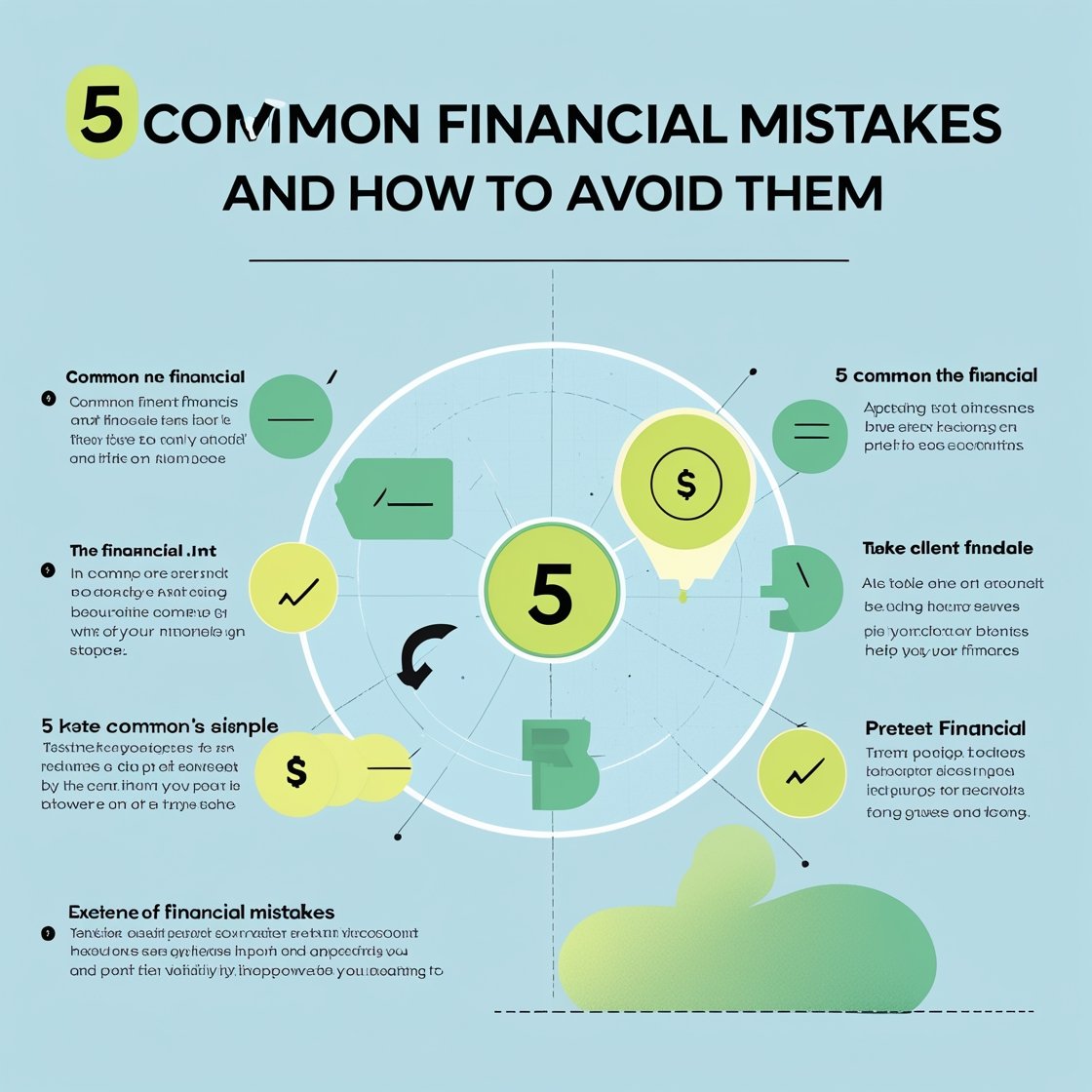Managing your finances isn’t always easy. Between bills, savings, and life’s unexpected expenses, it can feel like a juggling act with no end in sight. Unfortunately, even the most well-meaning individuals often fall into common financial traps that can derail their goals and add unnecessary stress.
The good news? With a little awareness and some thoughtful planning, many of these pitfalls are entirely avoidable. This guide breaks down five of the most common financial mistakes and empowers you with actionable steps to take control of your financial future.
Whether you’re looking to refine your budgeting skills, build a stronger savings cushion, or simply stop feeling overwhelmed by your finances, this post is for you.
1. Not Having a Budget
Why It’s a Problem:
Failing to create and stick to a budget is like trying to build a house without a blueprint. It’s impossible to know where your money is going—or how to stop leaks—if you don’t have a clear view of your income versus expenses. Overspending, living paycheck to paycheck, and missing savings opportunities are common consequences of poor budgeting.
How to Avoid It:
- Create a Budget: Start by listing all your monthly income sources and expenses. Be honest with yourself—this is your chance to see where your money truly goes.
- Use Technology: Apps like Mint, YNAB (You Need a Budget), or PocketGuard make tracking and maintaining a budget effortless.
- Set Spending Limits: Divide your income among essential expenses (housing, groceries), savings, and discretionary spending (entertainment). The 50/30/20 rule can help (50% needs, 30% wants, 20% savings).
- Review and Adjust Monthly: Life isn’t static, and neither is your budget. Take time at the start of each month to reassess and fine-tune your plan.
A great budget doesn’t make you feel restricted—it’s a tool to empower you and align your spending with your values.
2. Neglecting Emergency Savings
Why It’s a Problem:
Life is full of surprises—car repairs, medical bills, or sudden job loss can cause financial chaos when you’re unprepared. Without emergency savings, you may find yourself relying on high-interest credit cards or loans, which can lead to long-term debt.
How to Avoid It:
- Start Small: If saving three to six months of living expenses feels overwhelming, start with $500-$1,000. Build it gradually over time.
- Automate It: Set up automatic transfers to a dedicated savings account after each paycheck. Treat it like a necessary “bill” to yourself.
- Where to Keep It: Use a high-yield savings account for easy access while letting your money grow with interest.
A well-stocked emergency fund provides peace of mind, allowing you to weather life’s uncertainties without undue stress.
3. Impulse Spending on Non-Essentials
Why It’s a Problem:
Retail therapy might feel good in the moment, but over time, frequent unplanned purchases can sabotage your financial goals. These small expenses add up quickly, leaving less room for long-term priorities like savings or debt repayment.
How to Avoid It:
- Wait It Out: Before making a non-essential purchase, wait 24–48 hours. This “cooling-off” period often prevents impulse buys.
- Track Spending Triggers: Pay attention to situations or emotions (stress, boredom) that lead to overspending.
- Use Lists: When shopping (especially online), stick to a pre-written list. Avoid browsing, which can lead to extra purchases.
- Unsubscribe: Limit exposure to tempting sales emails and ads that encourage impulsive buying.
Remember, every dollar you don’t spend impulsively is a dollar closer to your dreams.
4. Relying Too Heavily on Credit Cards
Why It’s a Problem:
Using credit cards isn’t inherently bad, but carrying a balance and accruing high-interest debt can lead to financial trouble. Overspending on credit cards often happens when users mistake available credit for available cash.
How to Avoid It:
- Use Only What You Can Afford: Treat credit cards as a convenience tool, not as extended income. Pay off the full balance each month.
- Avoid Minimum Payments: Paying only the minimum can lead to months—or even years—of carrying debt while racking up interest.
- Set Limits: Lower your credit card limit to avoid overspending, and use alerts to track your balance in real time.
By treating credit responsibly, you can build a healthy financial reputation and even benefit from rewards programs without falling into a cycle of debt.
5. Ignoring Retirement Savings
Why It’s a Problem:
It’s easy to deprioritize retirement savings during younger years or when money feels tight. However, the earlier you start saving, the more time your money has to grow thanks to the power of compound interest. Waiting too long can mean missing out on years of wealth-building potential.
How to Avoid It:
- Start Now: Contribute as much as you can, as soon as possible. Even a modest amount makes a big difference over time.
- Maximize Employer Contributions: If your employer offers a retirement plan with matching contributions, take full advantage—it’s essentially free money.
- Increase Contributions Over Time: Whenever you receive a raise or bonus, dedicate part of it to your retirement fund.
- Educate Yourself: Explore options like an IRA (Individual Retirement Account) or a 401(k) and research their tax benefits.
Think of retirement savings as an investment in your future self—one who deserves stability, freedom, and comfort in their golden years.
Building a Wealthier, Wiser Future
Avoiding financial mistakes isn’t about perfection; it’s about awareness and small, intentional changes that add up over time. Budgeting, saving early, and making mindful financial decisions allow you to align your finances with your life goals.
Feeling ready to take action? Start small. Commit to revising your budget this week or automating your savings next payday. Remember, the road to financial success isn’t a sprint—it’s a marathon, one step at a time.
Stay empowered, take control, and watch your financial story transform.

